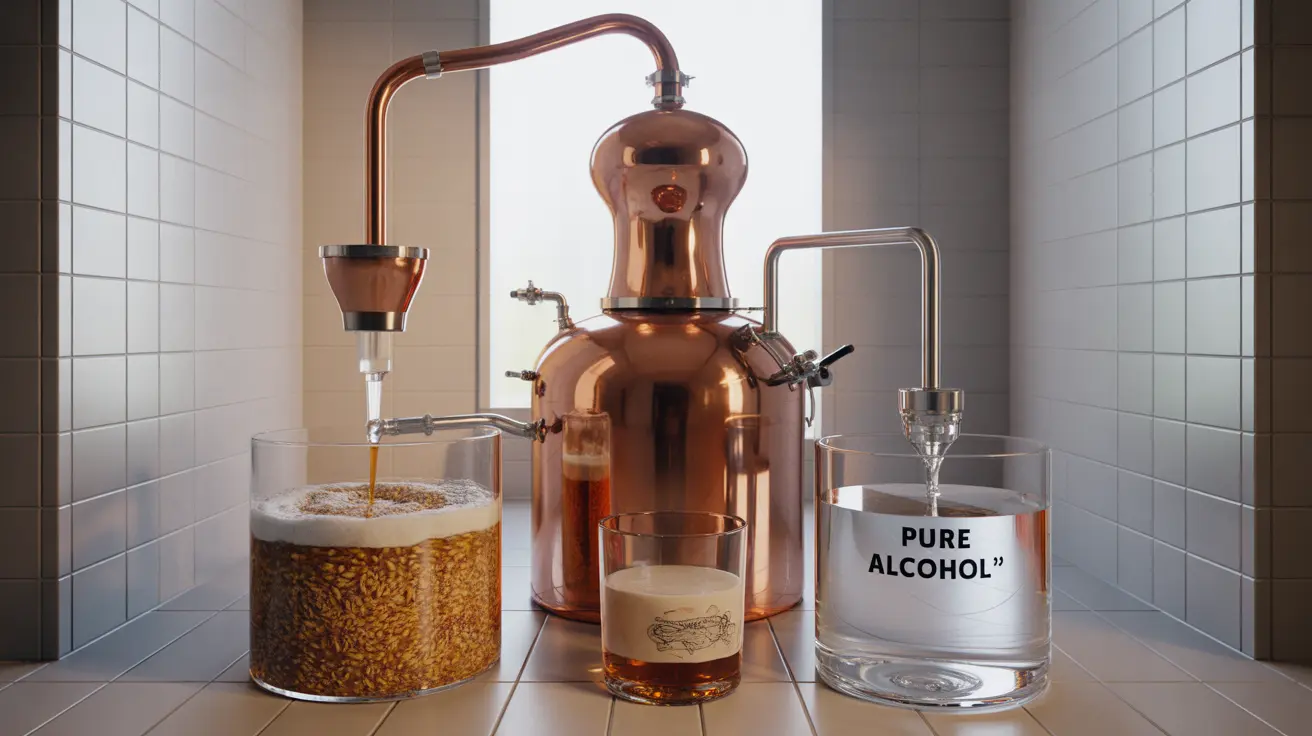For people with celiac disease or gluten sensitivity, understanding which alcoholic beverages are safe to consume is crucial. Whiskey, despite being traditionally made from gluten-containing grains like barley, rye, and wheat, raises important questions about its gluten content and safety.
This comprehensive guide explores the relationship between whiskey and gluten, examining the distillation process, different types of whiskey, and what consumers need to know to make informed decisions about their drinking choices.
Understanding Whiskey Production and Gluten
Whiskey production begins with fermenting grains, many of which naturally contain gluten proteins. The most common grains used include:
- Barley (contains gluten)
- Rye (contains gluten)
- Wheat (contains gluten)
- Corn (gluten-free)
However, the key to understanding whiskey's gluten content lies in its sophisticated distillation process, which fundamentally transforms these base ingredients.
The Science of Distillation and Gluten Removal
During distillation, the fermented grain mixture is heated until the alcohol vaporizes. This vapor is then collected and condensed back into liquid form. This process effectively separates the alcohol molecules from the grain proteins, including gluten.
Scientific evidence supports that properly distilled spirits, including whiskey, contain no detectable gluten proteins. The distillation process is so effective that even whiskeys made from gluten-containing grains are considered safe for most people with celiac disease.
Flavored Whiskeys and Added Ingredients
While pure distilled whiskey is generally gluten-free, flavored varieties require additional scrutiny. Some concerns include:
- Added flavorings that may contain gluten
- Caramel coloring (usually gluten-free but worth verifying)
- Post-distillation ingredients that could introduce gluten
Consumers with celiac disease or gluten sensitivity should carefully check labels and contact manufacturers for specific information about flavored products.
Naturally Gluten-Free Whiskey Options
Several whiskey brands produce their spirits using naturally gluten-free grains. These include:
- Corn-based bourbon (minimum 51% corn)
- 100% corn whiskeys
- Sorghum-based whiskeys
- Millet whiskeys
These options provide additional peace of mind for particularly sensitive individuals.
Cross-Contamination Considerations
While the distillation process effectively removes gluten, cross-contamination can occur during production. Key points to consider include:
- Manufacturing equipment cleaning procedures
- Storage vessel previous contents
- Bottling line practices
- Facility handling procedures
Reputable distilleries maintain strict quality control measures to prevent cross-contamination.
Frequently Asked Questions
Is whiskey made from gluten-containing grains safe for people with celiac disease?
Yes, properly distilled whiskey is generally considered safe for people with celiac disease, even when made from gluten-containing grains. The distillation process effectively removes gluten proteins from the final product.
How does the distillation process remove gluten from whiskey?
The distillation process removes gluten by heating the fermented grain mixture until alcohol vaporizes, leaving behind the gluten proteins. When the vapor is collected and condensed back to liquid form, the resulting whiskey is free from gluten proteins.
Are flavored whiskeys gluten-free or could they contain gluten after distillation?
Flavored whiskeys require careful consideration as added ingredients post-distillation could potentially contain gluten. Consumers should check labels and contact manufacturers for specific information about flavored varieties.
What are some whiskey brands made entirely from gluten-free grains?
Several options include corn-based bourbons, 100% corn whiskeys, sorghum-based whiskeys, and millet whiskeys. These products are made from naturally gluten-free grains from start to finish.
Can cross-contamination with gluten occur in whiskey production, and how can sensitive individuals protect themselves?
While rare, cross-contamination can occur during production, storage, or bottling. Sensitive individuals should choose reputable brands with transparent production processes and contact manufacturers directly with specific concerns about their gluten-free status.
Remember to always consult with your healthcare provider about consuming alcohol, especially if you have celiac disease or gluten sensitivity, as individual tolerances may vary.




